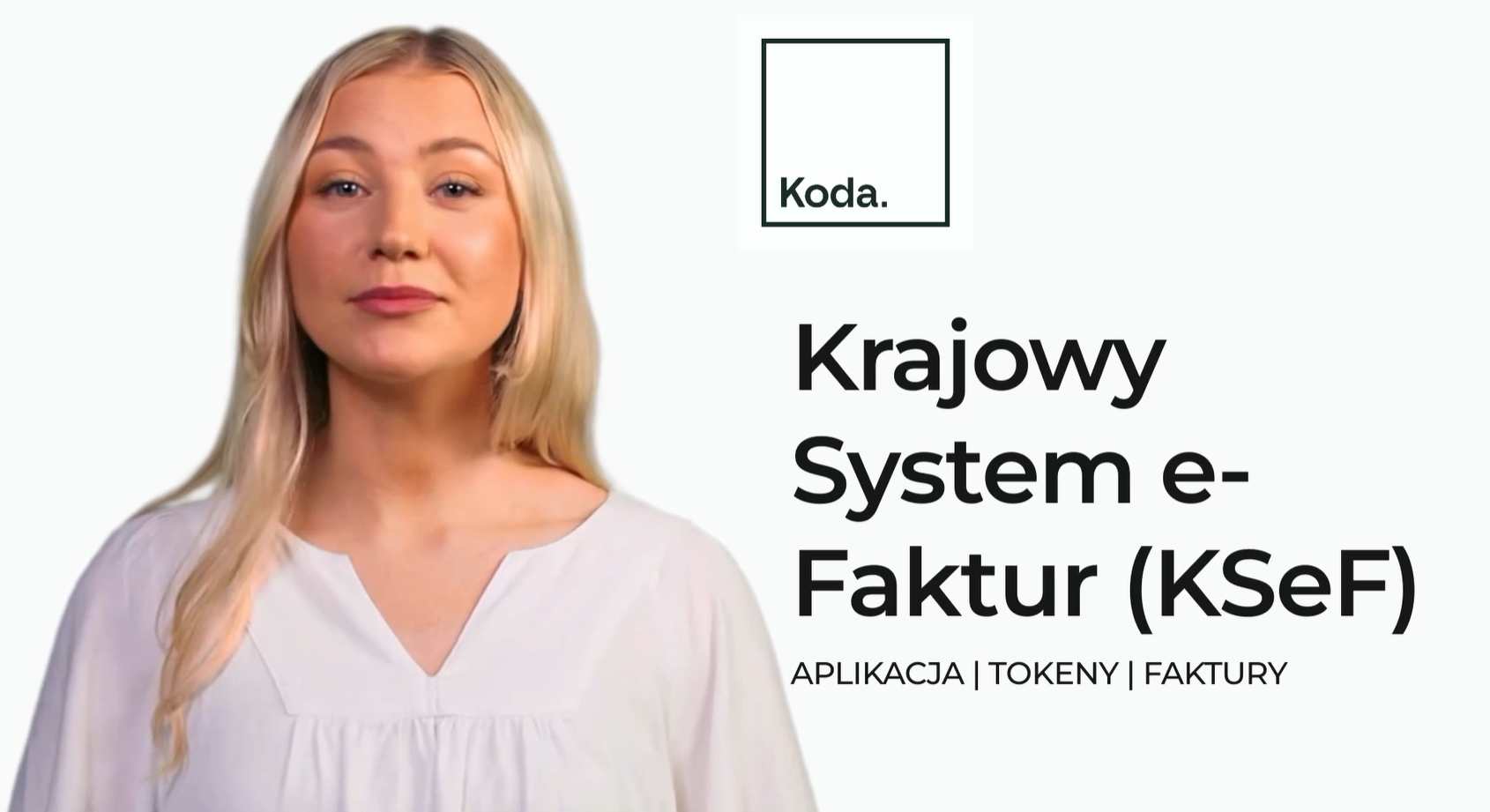
The Finance Ministry has presented the main assumptions for changes to the KSeF system following public consultations.
Among other things, it proposes to unify the deadline for implementing the mandatory KSeF for all taxpayers and to allow the possibility of issuing consumer invoices. Also planned is the possibility of issuing electronic “offline” invoices outside KSeF with a QR code and entering them into KSeF on the next business day.
It is also announced to defer the obligation to provide the KSeF number in payments and on invoices issued from cash registers and receipts with the NIP (TIN).
Below are the main planned changes in the implementation of KSeF resulting from the consultations carried out.
KSeF „National System of e-Invoices”.

Deadline for KSeF implementation
KSeF is planned to be implemented for all taxpayers on a single date (for active and VAT-exempt taxpayers). The date will be announced at the end of April/May.
At the same time, it is planned to:
• deferral of penalties and the obligation to provide the KSeF number in payments, including for the Split Payment Mechanism,
• additional deferral for invoices issued from the cash register and receipts with NIP (TIN) recognized as invoices.
According to the Ministry, unifying the deadline for all taxpayers will simplify the obligation to implement KSeF. Maintaining the deferral of penalties mitigates the impact of entrepreneurs’ mistakes during the initial period of KSeF operation. Deferring the obligation to provide the KSeF number in payments means more time to adapt IT systems to KSeF.
Offline mode
It is planned to introduce during the transition period for all taxpayers the option of issuing electronic invoices “offline” outside KSeF with a QR code and entering them into KSeF on the next business day.
This is due to concerns raised by entrepreneurs that in the initial period after the implementation of the mandatory KSeF, invoices sent to the System will be rejected on the last day of the settlement period, which will complicate the settlement process, among other things, the need for VAT adjustments and liability for issuing an invoice after the deadline, etc.
B2C invoices
As announced, it is planned to:
• Allowing consumer invoices to be issued in KSeF (optional),
• Providing consumer access to an invoice in KSeF by issuing it with a QR code (so-called “anonymous access to an invoice in KSeF”),
• “Self-identification” of the buyer for the purpose of issuing an invoice in KSeF by the supplier.
The rules of “self-identification” – VAT-exempt taxpayers will be required to provide their VAT number (when registered for VAT) or NIP (TIN) on invoices if they make purchases for business purposes. Taxpayers accounting for PIT under the general rules or “flate rate” will be required to have an invoice in KSeF for income tax purposes.
KSeF Aplikacja | Tokeny | Faktury [available in Polish]

Utility invoices and attachments
It has been announced that it will be possible to add attachments to the invoice for utilities, telecommunications services and other “aggregate” supplies. During the period necessary to adapt IT solutions, additional deferral of the obligation is possible.
Current solutions do not provide the possibility to send attachments via KSeF.
Invoices for utilities, telecommunications services and framework summary invoices in the attachments contain tax data (unit prices and quantity of goods/services). Currently, only an invoice with a framework summary invoice in an attachment is considered complete.
QR codes
The ability to pre-generate and collect buyer certificates for invoices issued during the failure and offline periods is planned.
At present, the possibility of pre-mandatory KSeF generation of buyer certificates allowing QR code invoices to be issued offline and breakdown is not regulated.
Invoices outside KSeF
The planned changes include the possibility of using paper invoices during the transition period for taxpayers where KSeF implementation may be problematic and the scale and value of invoices issued is small. The solution would apply when none of the invoices issued to such taxpayers exceeds the amount of PLN 450, up to a total value of PLN 10 thousand per month.
There will be an additional obligation to mark in the JPK_VAT sales records invoices issued bypassing KSeF (also issued offline or during a breakdown and not entered into KSeF on time).





